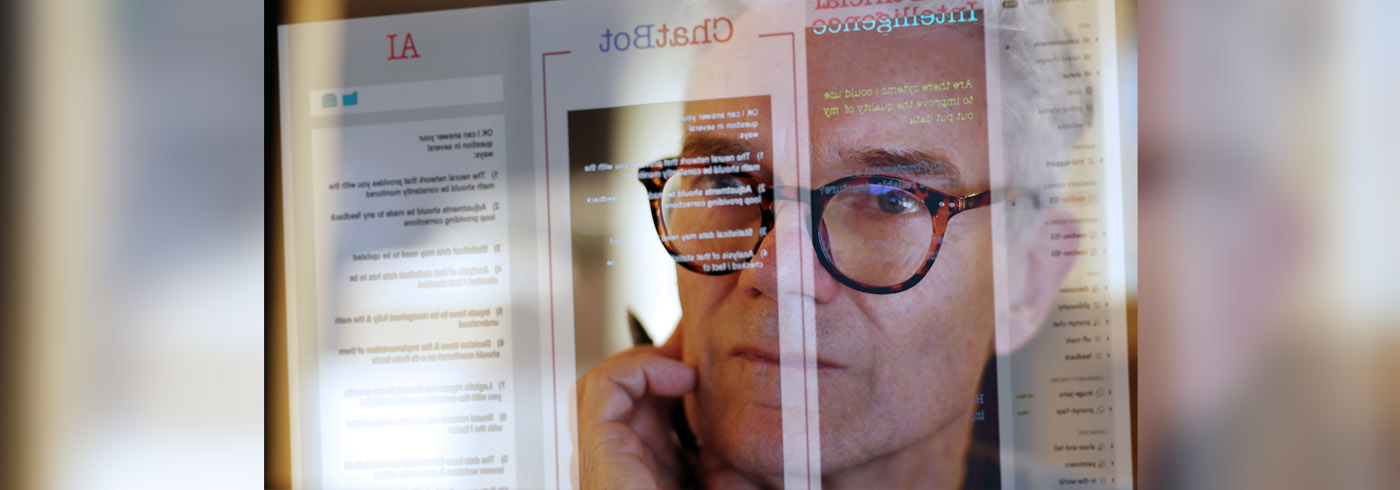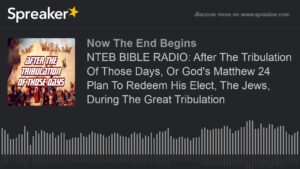AI and Christianity
 AI is here to stay but several Assemblies of God leaders weigh in on how Christians should responsibly use this new tech tool.
AI is here to stay but several Assemblies of God leaders weigh in on how Christians should responsibly use this new tech tool.
As awareness of artificial intelligence grows, many Christians are wondering about its use, in personal and professional life and also in church ministry. Are there ethical concerns? Is it different from other time-saving technology? What does the Bible have to say?
Artificial intelligence (AI) is generally defined as computer systems capable of performing tasks that have historically required human intelligence, such as perception, interacting with an environment, solving problems, or even creativity. The launch of chatbot programs and image generators, such as Open AI’s ChatGPT, made AI accessible to average computer users and has drawn a wide spectrum of responses from ministry leaders and faith-based groups.
Gloo, a technology platform dedicated to building connections and collective might across the faith community, worked with several partners, including Barna Group, to conduct an “AI & the Church” survey. The results, shared in August 2023, indicate that many respondents see value in AI as a time-saving tool, but 54% stated they are “quite” to “extremely” concerned about ethical or moral issues related to its use in church ministry; another 40% are “slightly” to “somewhat” concerned. A search of related articles yields similar comments.
Broadly, common responses and concerns include the following:
AI is a tool that can save time, but must be used within an overall Biblical framework.
The “He Gets Us” campaign, whose commercials emphasize Jesus’ relatability to human experience, reminds readers that Jesus used tools of His time—fishing boats, Roman-built roads—to share His message; hence, Christians can ask themselves how to use new tools to do so. However, an experiment by the campaign showed the importance of feeding AI the right information: Asking an image generator to illustrate “love,” led to disappointing, flowery-looking results; but when prompts were provided using Jesus’ words about love, the images seemed deeper and more thoughtful.
“You must ask the right questions,” says Dr. Johan Mostert, national director of CompaCare for CompACT Family Services. “Given direction about who you are and who your audience is, AI can limit its search to appropriate sources.” For example, AI can quickly create a comprehensive resource for lawyers that even surpasses the huge volumes seen in offices, but the technology must be directed to appropriate sites for precedents, legislation, etc. “The hard work is in the limiting,” says Mostert. “It’s a huge IT undertaking.”
The Church.Digital, a resource to help churches function in the digital space, shares content such as “Beginner’s Guide for Using AI for Image Generation.” Some posts are themselves generated by AI, with guidelines input by editors. The Church.Digital sees AI as a time-saver, suggesting chatbots for routine questions such as service times; algorithms to match congregants to groups and events; and robotic monitoring of facility maintenance.
As adjunct professor for Evangel University and Assemblies of God Theological Seminary, Mostert said institutions are researching and receiving guidance on the impact of ChatGPT and similar programs on education, particularly Christian higher education. Anecdotally, a teacher who asked ChatGPT to write a middle-school student essay found it very similar to student essays in her experience, showing that educators at all levels will need to limit student access to AI during testing. Excluding inappropriate content is also a concern. On the positive side, carefully-designed AI-assisted education could potentially revolutionize remote areas.
Excessive use of AI isolates people from vital socialization and relationships.
Dr. James A. Bradford, pastor of Central Assembly of God in Springfield, Missouri, and former General Secretary of the Assemblies of God, is no stranger to advances in technology. He sees AI as a tool for quickly finding facts, such as historical dates during sermon prep, but cautions, “While it can certainly speed up research, it can’t replace God’s Word and the Holy Spirit.”
Both Mostert and Bradford acknowledge the risk of disengagement from community and from actually reading the Bible. Such risk is not new with AI; the internet itself brought the same danger, and Covid-19 restrictions led to more online church options. Mostert points out that people will not receive the same benefit from asking only the questions they want to, compared to meeting in person with a Spirit-filled pastor or leader offering prophetic insight and facilitating discussion.
“Tech works against interaction,” Bradford says. “So much value lies in combining learning with relationship.” He encourages local churches to emphasize connection through regular sermons and teaching on that very topic, just as the Apostle Paul taught both large and small group gatherings: “You know that I have not hesitated to preach anything that would be helpful to you but have taught you publicly and from house to house” (Acts 20:20, NIV). Study tools such as the AG’s Bible Engagement Project are even more beneficial when used in community, both by families and in church groups.
AI can cause harm and cause spiritual confusion.
People at risk for harm by AI may include artists, writers, musicians, and other creatives, who point out AI cannot truly create on its own but must “borrow” other people’s creativity at some point, potentially misrepresenting them or robbing them of royalty earnings. In a recent episode of the “Writer’s Digest Presents” podcast, author Jane Friedman shared her experience fighting the online sale of fraudulent books written by AI using her name and style. Recalling the awkward early days of other online tools, she is cautiously optimistic that more robust safeguards will be developed, but presently, an unscrupulous user can request an essay or musical composition “in the style of so-and-so” and not be held accountable.
The Ethics and Religious Liberty Commission (ERLC) statement on AI cautions about harm to others, stating, “We know [technological tools] can also be designed and used in ways that dishonor God and devalue our fellow image-bearers.”
“As you know, we are called to reach the world with the gospel,” says Assemblies of God General Superintendent Doug Clay. “Tools like AI are able to aid us in this pursuit. But as pointed out in the statement of principles provided by ERLC, ‘AI will be inherently subject to bias and these biases must be accounted for, minimized, or removed through continual human oversight and discretion.’”
Pastor Bradford, who earned advanced degrees in aeronautical engineering prior to being called into ministry, shared a 2011 Time article estimating the year 2045 as an approximate point when AI could become so powerful that human intelligence would actually change in response. Such concerns have prompted calls by some for a temporary moratorium on further development, to study ethical questions and possible safeguards.
It is likely that, as Clay alluded to, there are both ethical and moral, as well as unethical and amoral ways to use AI, especially for Christians. However, God knows and holds the future. Nothing humans have ever achieved has surprised Him. Centuries ago, the printing press revolutionized the spread of God’s Word, and it continues to do so; yet it is sometimes used unwisely. The same television that offers unwholesome content also provides Bible training in restricted nations via satellite. The bottom line seems to be that we must seek the Holy Spirit’s guidance to use technology wisely to advance the Kingdom of God.
Note: Barna Group is currently developing a six-week Co-Lab to examine these and other questions related to AI technology in community; visit www.barna.com for updates.




